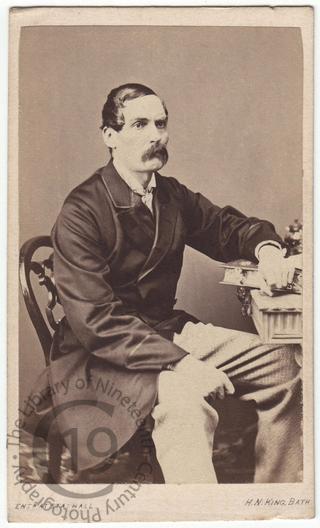
Richard Burton
A carte de visite portrait of the explorer Richard Francis Burton (1821-1890), from 1886 Sir Richard Burton, renown for his travels and explorations in Asia, Africa, and the Americas, as well as his extraordinary knowledge of languages and cultures. According to one count, he spoke 29 European, Asian, and African languages.
Wikipedia describes him as an ‘explorer, geographer, translator, writer, soldier, orientalist, cartographer, ethnographer, ethnologist, spy, linguist, poet, fencer, Freemason, and diplomat.’
Today he is best remembered for his expeditions with John Hanning Speke to discover the source of the Nile (Speke reached Lake Victoria but sickness had by then forced Burton to abandon the quest). Burton later disputed Speke’s claim that Lake Victoria was the Nile’s source.
Burton’s other achievements include a journey to Mecca, undertaken at great peril while disguised as an Arab, at a time when Europeans were forbidden access to the city on pain of death. He also published unexpurgated translations of One Thousand and One Nights (commonly called The Arabian Nights in English), the Kama Sutra and The Perfumed Garden (sometimes dubbed ‘The Arab Karma Sutra’).
Scandalous rumours, many of which he himself encouraged, dogged him for most of his career. These, coupled with his often irascible nature, may explain why he was never promoted further, either in army life or in the diplomatic service. According to one obituary: ‘he was ill fitted to run in official harness, and he had a Byronic love of shocking people, of telling tales against himself that had no foundation in fact.’ The novelist Ouida reported that men at the Foreign Office ‘used to hint dark horrors about Burton, and certainly justly or unjustly he was disliked, feared and suspected […] not for what he had done, but for what he was believed capable of doing.’
Photographed by Horatio Nelson King of Bath.
Code: 127514




